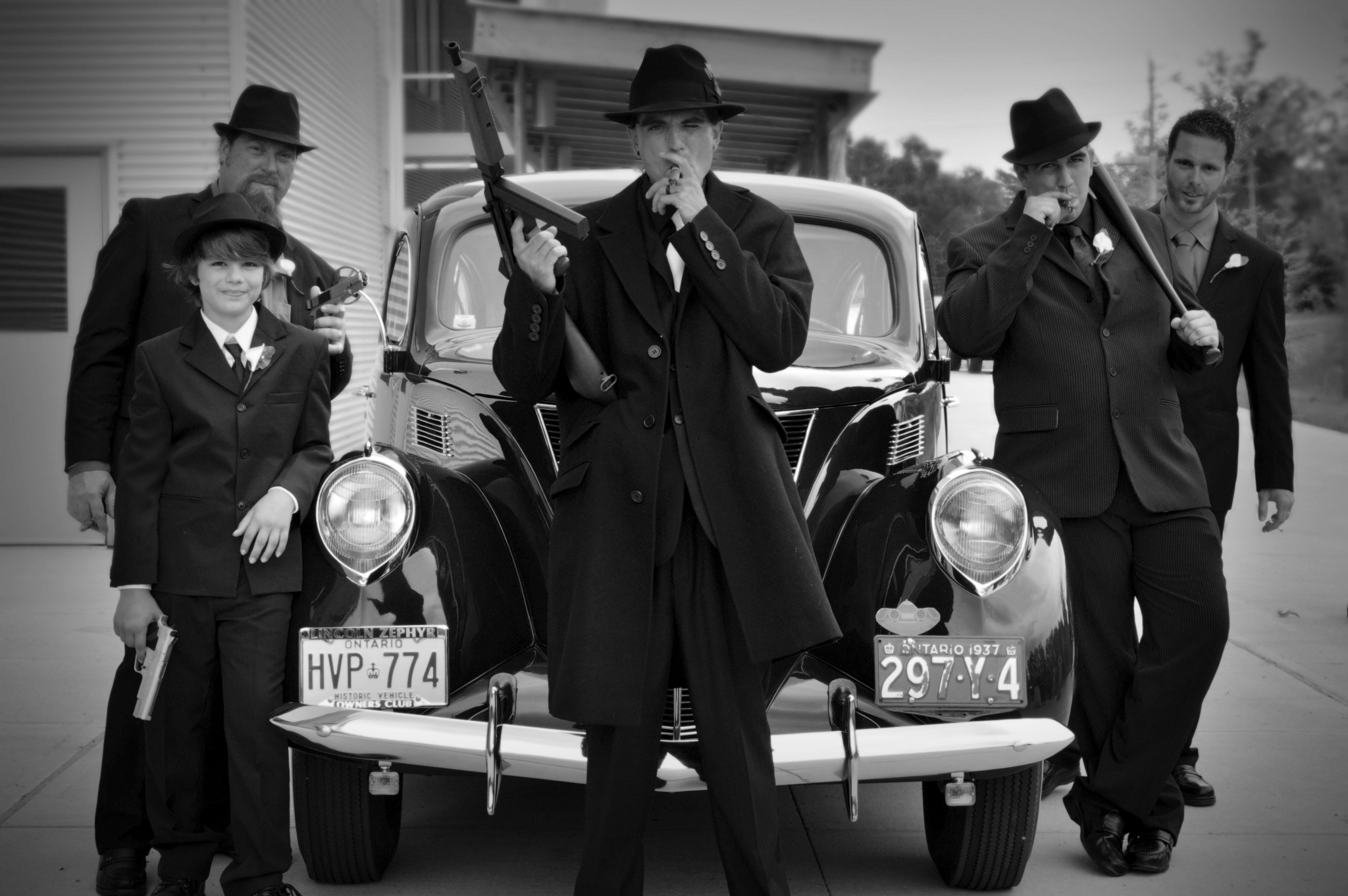Understanding Gangster Money Quotes: Insights From The Shadows
Have you ever wondered about the mindset behind certain ways of operating, especially when it comes to gaining influence or getting what you want? It is that curiosity which draws many to the idea of "gangster money quotes." These aren't always about literal cash, you see, but more about the principles of power, control, and getting things done, sometimes outside of typical means. We are going to look at some ideas that, in a way, show how some groups operate, using what we know from various sources, including details about fictional games and real-life groups.
It's fascinating, isn't it, how some ideas about power and resources seem to pop up in different places? From how groups form to how they handle competition, there are patterns. This article will explore these patterns, particularly focusing on what we can learn about how certain figures, or groups, view the acquisition of resources and influence. We will pull insights directly from a collection of text pieces you shared, which touch upon these very topics, giving us a unique angle on things.
So, get ready to think a bit differently about what "money quotes" might mean in a context beyond just dollars and cents. We will consider how actions, like recruiting others without cost or dealing with rivals, speak volumes about a group's approach to gaining and holding onto what they value. It's about looking at the deeper meaning behind the actions, you know, and seeing how they connect to the broader idea of influence and strategic thinking.
Table of Contents
- Understanding Influence and Networks
- The Nature of Rivalry and Conflict
- Unconventional Paths to Prominence
- The Importance of Structure and Organization
- Insights into Resourcefulness
- FAQ About Gangster Mindsets
- Conclusion
Understanding Influence and Networks
When we talk about "gangster money quotes," it's often not just about physical cash, but about how power and influence are built. You see, a big part of this involves gathering people and making connections. Our text, for instance, mentions how "gangsters can recruit other gangsters for free," which is quite a powerful idea, if you think about it. It suggests that the real value might lie in the network itself, rather than needing to spend a lot of money to get people on board, basically.
The Power of Free Recruitment
The idea that you can "recruit other gangsters for free" really highlights a particular kind of resourcefulness. It suggests that a group's appeal or its existing reputation is enough to draw in new members without needing direct payment. This, in a way, shows that influence can be a form of currency, or perhaps, a way to build strength without needing to dip into the bank. It's about leveraging what you already have, like your standing or your group's name, to grow your ranks. This approach, you know, makes a group more resilient, as it relies on something other than constant financial outlay.
This method of bringing people in, without direct monetary cost, points to a deeper strategic thought. It means the group offers something else of value, like protection, status, or a sense of belonging. So, it's not about paying for loyalty, but about creating an environment where people want to join and contribute. This kind of recruitment, you might say, builds a more solid foundation for a group's activities, because it's based on shared interests or perceived benefits, rather than just a paycheck. It's a way of expanding reach quite efficiently, as a matter of fact.
Strategic Communication for Reinforcement
Our text also mentions that these groups "get the cellphone item to call in reinforcements." This simple detail speaks volumes about the importance of communication and quick response in maintaining control and strength. Having the ability to call for backup, to be honest, means you can react fast to situations, and it shows a level of organization. It suggests that resources aren't just about people or money, but also about the tools and systems that let you coordinate your actions effectively. It's a key part of how a group can project its presence and handle challenges.
The "cellphone item" acts as a lifeline, allowing for immediate support when it's needed most. This capability, you know, reduces vulnerability and increases a group's operational capacity. It's a practical application of strategic thinking: ensuring that your people can communicate and act together, almost like a unified front. This kind of coordination is, in a way, just as important as having a lot of people or a lot of money, because it makes all your other resources more effective. It shows a clear understanding of how to maintain an advantage.
The Nature of Rivalry and Conflict
A significant part of understanding how these groups operate involves looking at how they interact with others, especially rivals. Our text makes it clear that they "are perma hostile against rival gang members." This tells us a lot about the constant state of competition and the need to protect one's own interests. It's a world where boundaries are often tested, and loyalty to one's own group is paramount, obviously.
Perpetual Hostility and Competition
The idea of being "perma hostile" against rivals really underlines the competitive spirit that can drive these groups. It's not just about occasional disagreements; it's a constant state of opposition, you know. This kind of environment means that resources, territory, or influence are always being contested. For a group, this means always being ready to defend what they have, and sometimes, to take what others possess. This ongoing conflict shapes their strategies and how they allocate their resources, making defense and offense equally important, in a way.
This constant rivalry also highlights the costs involved in such a lifestyle, not just in terms of direct conflict, but in the energy and focus required to maintain a strong position. It suggests that a group's "money" or resources are continually being used to manage these rivalries, whether through direct confrontation or by simply maintaining a strong enough presence to deter others. It's a cycle where competition fuels the need for more strength and resources, which then, in turn, fuels more competition. This dynamic, you might say, is a core part of their operational reality.
Chicago Mafia’s Cicero Crew and Latin Kings
The mention of "Chicago mafia’s cicero crew beefing with latin kings" provides a concrete example of this rivalry in action. This specific detail shows that these conflicts are not just abstract ideas but are real, ongoing struggles between identifiable groups. Such "beefs" are about asserting dominance, controlling areas, or perhaps, gaining access to specific opportunities. It is a very direct illustration of the competitive forces at play, where groups are constantly vying for position and influence.
This kind of direct conflict demonstrates that, for these groups, resources are often tied to territory and control. The "beefing" indicates that there is something worth fighting over, whether it's influence, access, or simply the right to operate in a certain area. It’s a clear sign that power is not just held, but actively defended and contested. This kind of struggle, you know, shapes the daily operations and strategic decisions of these groups, making competition a central part of their existence.
Unconventional Paths to Prominence
Sometimes, the path to influence or success, even in these contexts, doesn't follow typical routes. Our text briefly touches upon this by mentioning a specific individual. It makes you think about how different backgrounds can lead to different ways of operating and different kinds of success. It suggests that formal education or traditional paths are not the only ways to gain a foothold, as a matter of fact.
Eazy-E's Early Life
The information that "Born eric wright, eazy dropped out of school" offers a glimpse into an unconventional beginning. This detail, while brief, suggests that for some individuals who become prominent in certain circles, traditional education was not their primary route. It might imply that "street smarts," practical experience, or a different kind of drive played a larger role in their development and eventual standing. This, in a way, challenges the common idea that formal schooling is the only path to gaining influence or resources.
This particular piece of information makes us consider that "money quotes" for some might not be about financial advice from a textbook, but about lessons learned from life experience outside of typical institutions. It highlights a different kind of journey, one where skills and knowledge are acquired through direct involvement and observation. It shows that, for some, the path to gaining a position of power or accumulating resources is shaped by circumstances that lead them away from conventional routes. It's a perspective that, quite frankly, adds another layer to understanding how different kinds of "success" come about.
Here's a small detail from the text about Eazy-E:
| Detail | Information |
|---|---|
| Birth Name | Eric Wright |
| Education | Dropped out of school |
The Importance of Structure and Organization
Beyond individual actions and rivalries, the underlying structure of a group plays a significant part in its ability to operate and acquire resources. Our text mentions an "organized crime chart," which, you know, immediately brings to mind the idea of a clear hierarchy and a planned approach. This suggests that even in contexts that seem chaotic, there is often a method and a system at work, basically.
An "organized crime chart" implies a deliberate structure, with roles and responsibilities. This kind of planning helps a group function smoothly and effectively, which, in turn, helps them achieve their goals, whatever they may be. It means that resources, whether they are people, information, or actual money, can be managed and directed more efficiently. A clear structure, you might say, is a way to make sure everyone knows their place and what they need to do, which is pretty important for any group trying to get things done.
The existence of such a chart also points to a strategic mindset that values order and control. It suggests that those in charge think about how their group is put together, how information flows, and who is responsible for what. This attention to organization is, in a way, a key element in maintaining power and ensuring that operations run as intended. It helps prevent waste and makes it easier to coordinate actions, allowing the group to pursue its aims more effectively. It's about making sure everything is in its proper place, you know, for maximum impact.
Insights into Resourcefulness
Looking at these different aspects, a common thread appears: resourcefulness. Whether it's recruiting without direct cost, using communication tools, or navigating rivalries, the ability to make the most of what's available seems to be a recurring theme. This kind of adaptability, you see, is a crucial element for any group aiming to gain or hold onto influence and resources. It's about finding ways to achieve goals even when traditional means are not an option, or when the environment is, frankly, quite challenging.
The focus on strategic recruitment, the use of communication for reinforcements, and the constant management of rivalries all point to a pragmatic approach to getting what is needed. It’s not just about having a lot of money, but about how cleverly you use what you have, and how you adapt to situations. This perspective suggests that true "wealth" or "power" might come from the ability to innovate and to leverage non-traditional assets, like networks and information, in a smart way. It's about being clever with your means, basically, and making every action count.
This resourcefulness also extends to how groups deal with external pressures and internal dynamics. The fact that they are "perma hostile" with rivals means they must constantly be thinking about how to protect their interests with the resources they possess. This forces a kind of creative problem-solving, where every tool and every connection becomes important. It's a continuous process of adapting and finding new ways to maintain strength and influence, which is, in some respects, a very practical approach to survival and growth. This kind of thinking, you know, is quite telling.
Learn more about organized groups on our site, and link to this page here.
FAQ About Gangster Mindsets
People often have questions about how these groups operate, especially when it comes to their motivations and methods. Here are some common inquiries that come up, based on the kind of details we've explored.
How do gangsters gain influence?
From what we've seen, groups gain influence by building strong networks, often through "free recruitment," which means their appeal or existing power draws people in without direct payment. They also use tools like "cellphone items to call in reinforcements," showing that quick communication and coordinated action help them project strength and control. It's about growing their numbers and making sure they can act together, which, in a way, makes them quite formidable.
What drives conflict between rival groups?
Conflict between rival groups, like the "Chicago mafia’s cicero crew beefing with latin kings," appears to be driven by a constant state of "perma hostile" competition. This means groups are always vying for control over areas, resources, or opportunities. It's

Gangsters

Gangster Wallpaper (68+ images)

Gangsters